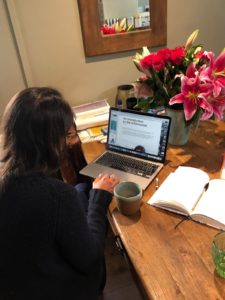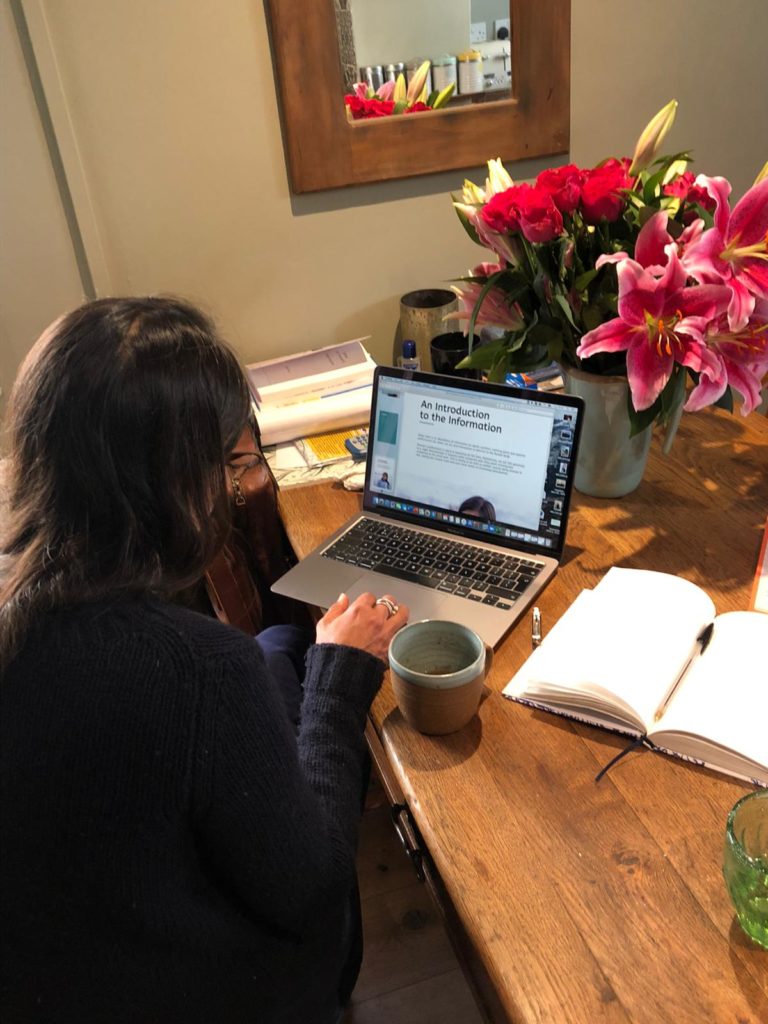Life is hard right now; the lockdown continues. While there have been some relaxing of the rules, social distancing is very much here to stay for the foreseeable future. While we have been told to “be alert”, the threat from the invisible prey, Covid-19, is still very much present with still no real light at the end of the tunnel and a shift towards a “new norm” that none of us can really get our heads around.
2020 will always go down as the year that we all look back on and remind ourselves to be grateful for our freedom.
All around the world people are suffering; those who are ill, those who are working on the frontline, those who are delivering the avalanche of parcels being ordered as all non-essential shops remain closed. Those working in supermarkets, teachers who are trying to educate from a distance while also supporting parents having to take on the primary role of a teacher. Then there are those who have lost their jobs, those who are living in fearful relationships or abusive households and those who are homeless. Very few homes are harmonious right now.
From my small corner of the country, running my clinic from my kitchen table over a laptop, in my cottage, I hear and see the pain in those I work with.
While understandably, we have been focusing on reducing the infection rate and following the motto to “stay home and stay safe”, little thought has been given to the long term implications of all these strategies on mental health, let alone to those who are in the midst of an illness.
We are all living our own story and in these unprecedented times, it can probably feel like, “survival of the fittest” or maybe even, “ I’m staying at home, so I’m doing my bit” with little thought to those that are experiencing this pandemic with heightened anxiety.
Eating disorders and/or exercise dependency, are misunderstood at the best of times, but the lack of empathy and concern I am witnessing during this global pandemic has truly saddened me.
An eating disorder is a coping mechanism; it is a method of denying difficult and uncomfortable emotions. A way of maintaining order when life feels chaotic. Food and exercise become the medium by which they express their discomfort, while at the same time a method of creating order; where the pursuit of achieving body image “ideals” is a way to try to attain approval and a sense of worth, when they can’t get this from anywhere else in their life.
It is important to appreciate that most people with an eating disorder have low self-esteem.
We are all born with self assurance but we can lose it through our experiences and interpretations at the different stages of development we go through.
Eating disorders are very ritualistic, even those like binge eating disorders as there is often careful planning that goes into creating the space and environment to binge. Remember they provide order when life feels far from it. These rituals become a learnt behaviour, that then becomes the norm so that the individual can’t separate from the fact it feeds into their low self worth. The real problem with creating such rigid rules is that change becomes hard because the anxious mind becomes catastrophic. This is one of the reasons why so many of the people I have worked with have found the lockdown so difficult. Literally overnight, our lives changed. Those who have to live by strict routines, thrown into a complete sense of chaos. This heightened anxiety drives the need for “order” further which is why so many of the individuals I have worked with have found themselves becoming even more extreme in their behaviours around food and exercise.
Another big challenge I have had to work through during this lockdown with many clients is social comparison. In general, if you think about the types of accounts you tend to follow on social media, they will probably all follow a similar theme. So, to a certain degree, your social media acts as an echo chamber for the messages you probably already believe in. This is particularly true for those with low self worth and disordered behaviours around food and exercise; it is a method to seek out the accounts that validate and maintain their behaviours.
In addition, these same Individuals are continually upwardly comparing themselves with everyone else. We are living during a time where we have extra opportunity to scroll through social media, and with so many people posting about what training they are doing, as well as the ample provision of online workouts, it feeds into their self critical mindset.
“I am not enough, I am not doing enough, I must do more” with no thought to the fact that their poor bodies are already being punished more than enough or that what is being posted is only a snapshot of that individual’s day. This is the key issue with so many with an eating disorder, they cannot see that their constant pursuit for “happiness, completeness, success” is unrealistic because life is not linear, it is more like a scatter diagram. They have never learnt how to deal with difficult emotions and so they continually run from them, not appreciating that it’s the lack of self acceptance that is fundamentally their cause of disease.
For the most part, these last few months in clinic have been no different, providing a space for clients where there is no judgement and helping to manage their anxieties about food, exercise and body image. However at the same time, it has been a real opportunity to also help them explore their issues with uncertainty – that constant need to know, and get it right because what better way to teach than during a time when we really have no actual experience of answers of what lies ahead.
It has also been about helping them to see that they are not defined by their past. Life happens to them but it doesn’t have to become them or their fate.
It’s been about demonstrating that life is unpredictable; it almost comes at you like waves. The ideal scenario is that with each receding wave, we should let a little more go. A life free of regret and grudges is definitely simpler and less painful than one where you hold onto them but letting go is also easier said than done.
In reality when we talk about “letting go” we are talking about becoming more forgiving and generally directing that forgiveness towards ourselves. It is a regular conversation I have with my clients…
“Next time you find yourself berating yourself, change your response and be more forgiving.”
We discuss how life is not permanent and we all have the power to change our narrative to one that involves self acceptance and compassion. However, more importantly, to really move forwards in the process of recovery, we have to embrace the fact that,
“Discomfort is the price of admission to a meaningful life”
-Susan David.




